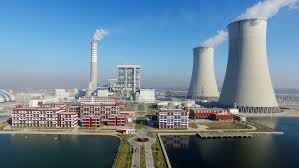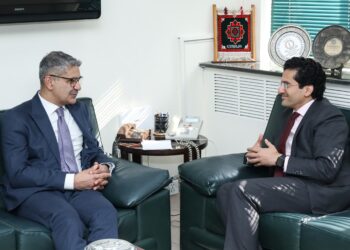ISLAMABAD : The National Electric Power Regulatory Authority (NEPRA) has approved a power tariff increase of 1.1 paisa per kilowatt-hour (kWh) by allowing the recovery of the Private Power and Infrastructure Board’s (PPIB) annual fee of $250 per megawatt (MW) from electricity consumers.
This adjustment permits the annual PPIB fee to be treated as a pass-through cost, similar to other recoverable charges by the Central Power Purchasing Agency-Guarantee (CPPA-G) and NEPRA itself.
NEPRA held a suo motu public hearing on February 13, 2025, to seek input from PPIB and stakeholders. As per NEPRA rules, any fee levied on power generation or capacity is typically passed on to consumers.
In its determination issued Monday, NEPRA acknowledged that PPIB has significant budgetary needs, including plans to develop infrastructure such as a dedicated office building. While these may be valid from an operational perspective, NEPRA emphasized that any cost passed on to end-consumers must be carefully justified and balanced against electricity affordability.
“The Authority recognizes PPIB’s institutional requirements but also must ensure that costs allowed as pass-through items do not place an unjustified burden on consumers,” the determination stated. “Only demonstrably necessary, efficient, and proportionate expenses should be permitted under the NEPRA Act.”
NEPRA further noted that while it scrutinizes and approves the budgets of other licensees such as the Market and System Operators, it does not currently have the authority to vet PPIB’s budgetary requirements. This lack of oversight, the Authority observed, reinforces the need for the PPIB fee to be rationalized and denominated in rupee terms to minimize exchange rate risks and unnecessary financial pressure on consumers.
From PPIB’s perspective, the annual fee is necessary to ensure institutional financial sustainability and falls within its legal mandate. However, NEPRA acknowledged that many Independent Power Producers (IPPs) view this fee as an added financial burden not originally factored into their tariff structures or Power Purchase Agreements (PPAs), especially since the PPIB Fee Rules were introduced in 2018.
NEPRA noted that the CPPA-G has treated the fee as a pass-through in most cases. However, for projects under the 2015 Power Policy, this treatment depends on the “change in law” provisions within their contractual frameworks, requiring both NEPRA’s determination and a government notification.
“In view of the legal framework, historical practice, and the need to maintain regulatory consistency, the Authority has allowed the PPIB annual fee as a pass-through, subject to compliance with the relevant provisions of PPAs/EPAs and NEPRA’s tariff regime,” the decision stated.
PPIB earlier informed NEPRA that while some IPPs have paid the annual fee without objection, others have raised concerns before forums including the Minister for Energy and the Secretary Power Division. These IPPs argued that the original $300/MW fee was excessive and requested a downward revision.
In response, the PPIB Board reduced the annual fee to $250/MW through the “PPIB Board (Fees and Charges) (Amendment) Rules 2021,” which were officially notified on June 15, 2022, following Board approval in August 2021.
Commenting on the decision of NEPRA, Barrister Asghar Khan, a power sector legal expert stated that the PPIB fee allowed by the NEPRA as a pass through is not permissible under the NEPRA Act, Rules and Regulations.
” When PPIB fee is not part of the capital expenditure (CAPEX), operational expenditure (OPEX), Quarterly Tariff Adjustments (QTAs) or Fuel Price Adjustment (FCA), of the IPPs, then how in a slipshod manner, to be treated as part of the tariff by the NEPRA Authority,” he added.
According to him, the NEPRA Authority does not have the competence and jurisdiction to admit and allow such charges, fees and taxes as part of the tariff when (i) PPIB is not a licensee of the NEPRA and (ii) such fees, charges and fees are not levied as part of the generation, transmission and distribution business of the power entities. Needless to mention that such fees and taxes have been allowed in exercise of suo motu powers exercised by the NEPRA Authority which powers are not vested in the courts of law let alone the NEPRA Authority.
He further stated that the NEPRA Authority does not have the power and competence to convert fees and charges into tariff or terms and conditions of the tariff. The PPIB Fee levied under Section 5(2)(i) of the PPIB Act 2012 prescribes that it shall receive fees and charges for processing applications and deposit and disburse or utilize the same, if required. Such fees and charges are never meant to be part of the tariff to be charged to the consumers of the electricity. Further, such fees and charges constitute part of the PPIB Fund under Section 14 of the PPIB Act 2012 and are not to be treated as a pass through in the tariff.
Furthermore, the PPIB fee is not part of the security package agreements or any power policy then how NEPRA Authority has allowed such PPIB fee as part of the tariff and an additional burden on the consumers of electricity.
PPIB is a public entity as such entity is defined under the Public Finance Management Act 2019 and without any views of the Finance Division on the policy, guidelines, rules or regulations framed for the PPIB Fund constituted under the PPIB Act 2012 has allowed these charges and fee as part of the tariff which in essence means that monies from the Public Accounts are withdrawn to be collected and disbursed to the PPIB fund which is violation of the constitutional provisions, NEPRA Act, 1997, PPIB Act 2012 and PFMA 2019.
He was of the view that the NEPRA Authority without any financial analysis has allowed the entire fees levied by the PPIB in a blanket manner. The scope of such fee is unlimited spanning from 1994 Power Policy, 2002 Power Policy, 2015 Power Policy, RE Policy 2006, ARE Policy 2019 and others. ” The NEPRA Authority’s Order is bad in law as it does not define the scope, quantum, causation etc. of such fee in relation to the electric power services and is a taxation without the approval of Parliament under Article 77 of the Constitution of Pakistan which clearly directs and mandates
that ‘No tax shall be levied for the purposes of the Federation except by or by or under the authority of Act of [Majlis-e-Shoora (Parliament)],” he concluded. Ends
ENDS















